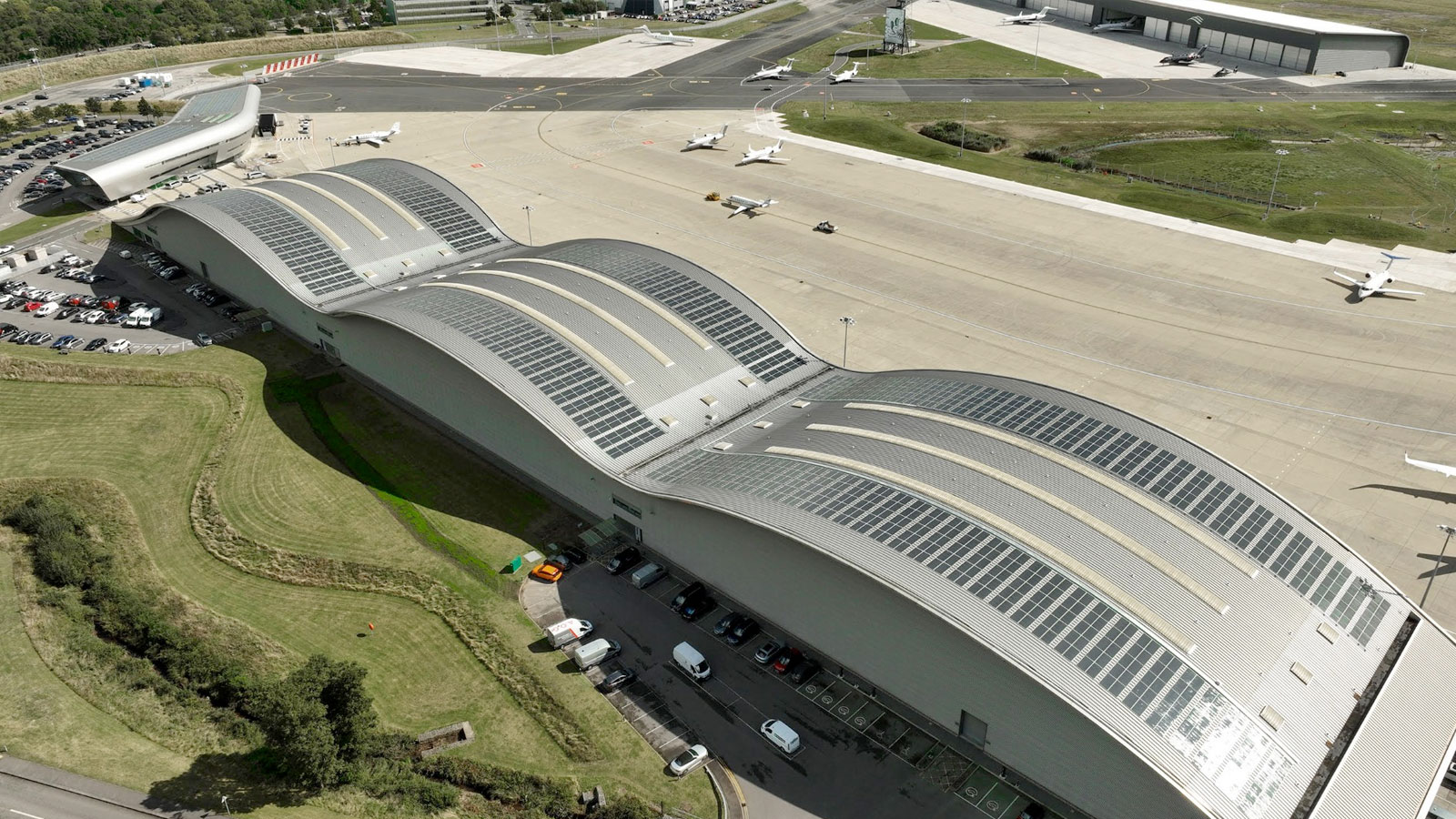Farnborough Airport has completed a £2 million solar installation in partnership with Solivus, marking a significant step towards its commitment to reach net zero emissions by 2030.
Located in Hampshire, Farnborough Airport is a hub for private air travel within the UK and Europe, and is famed for its biennial air show. While that might seem like it wouldn’t be compatible with reducing emissions, the airport itself is trying to do all it can to minimise the carbon footprint of its operations.
The new solar project involved the installation of over 4,000 lightweight solar panels across hangars one and two, the terminal, the control tower, and the airport’s hotel, the Aviator Hampshire.
The installation commenced in January 2024 and now provides a combined capacity of over 1,700 kWp, generating more than 1.2 GWh of clean energy annually. This output will supply up to 25% of the airport’s annual electricity needs, with approximately 75% of the solar energy used on-site. The remaining 25% will be sold back to the energy supplier.
Due to operational and environmental restrictions, ground-mounted solar panels were not feasible, and the airport’s iconic curved rooftops could not support traditional rigid solar panels. Solivus provided a solution with its lightweight solar technology, which can be installed without penetrating the roof and is suitable for a variety of roof surfaces.
Farnborough Airport’s CEO, Simon Geere, commented, “In line with our ambition to become a sustainability showcase for airports around the world, we’re proud to have partnered with lightweight solar technology pioneers, Solivus, to install one of the largest rooftop solar projects in the region. The lightweight solar installation is a significant step towards achieving our sustainability objectives, significantly reducing our controllable emissions, as set out in our Net Zero Roadmap, in which we have committed to be Net Zero by 2030 or sooner.”
The project aligns with a recent government initiative encouraging the extensive deployment of rooftop solar on commercial properties. Safety considerations were addressed by working closely with the National Air Traffic Services to minimise any glint and glare from the panels.
Jo Parker-Swift, CEO of Solivus, added, “Rooftop solar is crucial for decarbonising the built environment, but its application has often been constrained by the structural limitations of many commercial buildings. Put simply, traditional solar panels are too heavy for many rooftops. Our lightweight solar innovation addresses this issue, enabling large-scale, cost-effective solar deployment across nearly all large commercial buildings and sites.
“We are proud to have worked with Farnborough Airport to ensure the future supply of renewable energy, supporting the airport’s progressive net zero emissions journey. We encourage other airports to seize the opportunity to benefit from our lightweight solar energy installations and advance their own sustainability initiatives.”
The solar installation is expected to generate over 36 GWh of energy over its lifetime, offsetting more than 5,000 tonnes of CO2 equivalent emissions.

